Latest Sheet Music
Debussy

Achille-Claude Debussy (August 22, 1862 – March 25, 1918) was a French composer. Along with Maurice Ravel, he is considered one of the most prominent figures working within the field of Impressionist music, though he himself intensely disliked the term when applied to his compositions. Debussy was not only among the most important of all French composers but also was a central figure in all European music at the turn of the twentieth century.
Debussy's music virtually defines the transition from late-Romantic music to twentieth century modernist music. In French literary circles, the style of this period was known as Symbolism, a movement that directly inspired Debussy both as a composer and as an active cultural participant.
Debussy's music virtually defines the transition from late-Romantic music to twentieth century modernist music. In French literary circles, the style of this period was known as Symbolism, a movement that directly inspired Debussy both as a composer and as an active cultural participant.
Bond Quartet

Together Tania Davis (Violin), Eos Counsell (violin), Elspeth Hanson (viola) and Gay-Yee Westerhoff (cello) complete the line-up of BOND.
At its launch, BOND was hailed in the press as ‘the Spice Girls of Classical music’, and went onto turn the world of classical crossover music on its head, spawning many electric string groups inspired by its unique sound.
The members of BOND draw their inspiration from classical, latin, folk, jazz, rock, pop, electro, Indian and middle eastern styles. They have built a very active and loyal international fan base over the years and, since their debut, BOND have sold over 4 million albums worldwide, making BOND the best-selling string quartet of all time.
At its launch, BOND was hailed in the press as ‘the Spice Girls of Classical music’, and went onto turn the world of classical crossover music on its head, spawning many electric string groups inspired by its unique sound.
The members of BOND draw their inspiration from classical, latin, folk, jazz, rock, pop, electro, Indian and middle eastern styles. They have built a very active and loyal international fan base over the years and, since their debut, BOND have sold over 4 million albums worldwide, making BOND the best-selling string quartet of all time.
Schumann

Robert Schumann, sometimes given as Robert Alexander Schumann, (June 8, 1810 – July 29, 1856) was a German composer, aesthete and influential music critic. He is one of the most famous Romantic composers of the 19th century.
He had hoped to pursue a career as a virtuoso pianist, having been assured by his teacher Friedrich Wieck that he could become the finest pianist in Europe after only a few years of study with him. However, a hand injury prevented those hopes from being realized, and he decided to focus his musical energies on composition. Schumann's published compositions were, until 1840, all for the piano; he later composed works for piano and orchestra, many lieder (songs for voice and piano), four symphonies, an opera, and other orchestral, choral and chamber works. His writings about music appeared mostly in the Neue Zeitschrift für Musik ("The New Journal for Music"), a Leipzig-based publication that he jointly founded.
In 1840, after a long and acrimonious legal battle with his piano instructor Friedrich Wieck, Schumann married Wieck's daughter, pianist Clara Wieck, a considerable figure of the Romantic period in her own right. Clara Wieck showcased many works by her husband as well. For the last two years of his life, after an attempted suicide, Schumann was confined to a mental institution.
He had hoped to pursue a career as a virtuoso pianist, having been assured by his teacher Friedrich Wieck that he could become the finest pianist in Europe after only a few years of study with him. However, a hand injury prevented those hopes from being realized, and he decided to focus his musical energies on composition. Schumann's published compositions were, until 1840, all for the piano; he later composed works for piano and orchestra, many lieder (songs for voice and piano), four symphonies, an opera, and other orchestral, choral and chamber works. His writings about music appeared mostly in the Neue Zeitschrift für Musik ("The New Journal for Music"), a Leipzig-based publication that he jointly founded.
In 1840, after a long and acrimonious legal battle with his piano instructor Friedrich Wieck, Schumann married Wieck's daughter, pianist Clara Wieck, a considerable figure of the Romantic period in her own right. Clara Wieck showcased many works by her husband as well. For the last two years of his life, after an attempted suicide, Schumann was confined to a mental institution.
Oscar Peterson

Oscar Emmanuel Peterson, CC, CQ, O.Ont. (August 15, 1925 – December 23, 2007) was a Canadian jazz pianist and composer. He was called the "Maharaja of the keyboard" by Duke Ellington, "O.P." by his friends, and was a member of jazz royalty. He released over 200 recordings, won seven Grammy Awards, and received other numerous awards and honours over the course of his career. He is considered to have been one of the greatest jazz pianists of all time, who played thousands of live concerts to audiences worldwide in a career lasting more than 65 years.
James Horner

James Roy Horner (born August 14, 1953) is an award winning American composer, orchestrator and conductor of orchestral and film music. He is noted for the integration of choral and electronic elements in many of his film scores, and for frequent use of Celtic musical elements.
In a career that spans over three decades, Horner has composed several of Hollywood's most famous film scores. He is probably best known for his critically acclaimed works on the 1997 film Titanic, which remains today the best selling film soundtrack of all time. Other popular works include Braveheart, Apollo 13, The Mask of Zorro, and The Legend of Zorro.
Horner is a two time Academy Award winner, and has received a total of 11 nominations. He has won numerous other awards, including the Golden Globe Award and the Grammy Award.
In a career that spans over three decades, Horner has composed several of Hollywood's most famous film scores. He is probably best known for his critically acclaimed works on the 1997 film Titanic, which remains today the best selling film soundtrack of all time. Other popular works include Braveheart, Apollo 13, The Mask of Zorro, and The Legend of Zorro.
Horner is a two time Academy Award winner, and has received a total of 11 nominations. He has won numerous other awards, including the Golden Globe Award and the Grammy Award.
Schubert

Franz Peter Schubert (January 31, 1797 – November 19, 1828) was an Austrian composer. He wrote some 600 lieder, nine symphonies (including the famous "Unfinished Symphony"), liturgical music, operas, and a large body of chamber and solo piano music. He is particularly noted for his original melodic and harmonic writing.
While Schubert had a close circle of friends and associates who admired his work (including his teacher Antonio Salieri, and the prominent singer Johann Michael Vogl), wider appreciation of his music during his lifetime was limited at best. He was never able to secure adequate permanent employment, and for most of his career he relied on the support of friends and family. Interest in Schubert's work increased dramatically in the decades following his death and he is now widely considered to be one of the greatest composers in the Western tradition.
While he was clearly influenced by the Classical sonata forms of Beethoven and Mozart (his early works, among them notably the 5th Symphony, are particularly Mozartean), his formal structures and his developments tend to give the impression more of melodic development than of harmonic drama. This combination of Classical form and long-breathed Romantic melody sometimes lends them a discursive style: his 9th Symphony was described by Robert Schumann as running to "heavenly lengths". His harmonic innovations include movements in which the first section ends in the key of the subdominant rather than the dominant (as in the last movement of the Trout Quintet). Schubert's practice here was a forerunner of the common Romantic technique of relaxing, rather than raising, tension in the middle of a movement, with final resolution postponed to the very end.
While Schubert had a close circle of friends and associates who admired his work (including his teacher Antonio Salieri, and the prominent singer Johann Michael Vogl), wider appreciation of his music during his lifetime was limited at best. He was never able to secure adequate permanent employment, and for most of his career he relied on the support of friends and family. Interest in Schubert's work increased dramatically in the decades following his death and he is now widely considered to be one of the greatest composers in the Western tradition.
While he was clearly influenced by the Classical sonata forms of Beethoven and Mozart (his early works, among them notably the 5th Symphony, are particularly Mozartean), his formal structures and his developments tend to give the impression more of melodic development than of harmonic drama. This combination of Classical form and long-breathed Romantic melody sometimes lends them a discursive style: his 9th Symphony was described by Robert Schumann as running to "heavenly lengths". His harmonic innovations include movements in which the first section ends in the key of the subdominant rather than the dominant (as in the last movement of the Trout Quintet). Schubert's practice here was a forerunner of the common Romantic technique of relaxing, rather than raising, tension in the middle of a movement, with final resolution postponed to the very end.
The Fray

The Fray is a Grammy Award-nominated four-piece piano rock American band from Denver, Colorado. Formed in 2002 by schoolmates Isaac Slade and Joe King, the band released their debut album How to Save a Life in 2005. The band is best known for the song "How to Save a Life", which charted in the top three of the Billboard Hot 100 and was also a top 5 single in Canada, Australia, Ireland, Sweden, and the United Kingdom. The Fray also found national success with the song "Over My Head (Cable Car)", which became a top ten hit in the United States and Canada. How to Save a Life was certified double platinum by the Recording Industry Association of America and was also certified platinum in Australia and New Zealand.
The Fray was formed in 2002, and currently consists of Isaac Slade (vocals and piano), Joe King (guitar and vocals), Dave Welsh (guitar) and Ben Wysocki (drums and percussion). While the band has no official bass guitarist, Dan Lavery of Tonic has been the touring bassist since March 2007. Prior to Dan joining the touring fold, Jimmy Stofer, also a member of the band Hello Kavita, was employed as the band's touring bassist from 2005 through February 2007.
The Fray was formed in 2002, and currently consists of Isaac Slade (vocals and piano), Joe King (guitar and vocals), Dave Welsh (guitar) and Ben Wysocki (drums and percussion). While the band has no official bass guitarist, Dan Lavery of Tonic has been the touring bassist since March 2007. Prior to Dan joining the touring fold, Jimmy Stofer, also a member of the band Hello Kavita, was employed as the band's touring bassist from 2005 through February 2007.
Faith Hill

Audrey Faith Perry McGraw, known professionally as Faith Hill (born September 21, 1967), is an American country and pop singer, known both for her commercial success and her marriage to fellow country star Tim McGraw. Hill's voice (described as both soulful and raspy) and careful song selection have helped her to sell more than 35 million records and accumulate eleven number-one singles on the Country charts.
Hill has been honored by the Country Music Association, the Academy of Country Music, the Grammy Awards, the American Music Awards and the People's Choice Awards. Her Soul2Soul II Tour 2006 with husband McGraw became the highest-grossing country tour of all time. In 2001 she was named one of the "30 Most Powerful Women in America" by Ladies Home Journal.
Hill has been honored by the Country Music Association, the Academy of Country Music, the Grammy Awards, the American Music Awards and the People's Choice Awards. Her Soul2Soul II Tour 2006 with husband McGraw became the highest-grossing country tour of all time. In 2001 she was named one of the "30 Most Powerful Women in America" by Ladies Home Journal.
Marc-André Hamelin
Marc-André Hamelin, OC, CQ (born September 5, 1961), is a Canadian virtuoso pianist and composer. Hamelin is recognized worldwide for the originality and technical proficiency of his performances of the classic repertoire. He has received 11 Grammy Award nominations.
Schumman
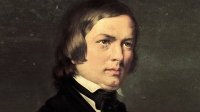
Robert Schumann was a German composer, pianist, and influential music critic. He is widely regarded as one of the greatest composers of the Romantic era. Schumann left the study of law, intending to pursue a career as a virtuoso pianist.
The Phantom of the Opera

The Phantom of the Opera is a 2004 film adaptation of Andrew Lloyd Webber and Charles Hart's 1986 stage musical, which is based on the novel of the same name by Gaston Leroux. The film was written and directed by Joel Schumacher and Webber and Webber produced the film. The cast includes Gerard Butler as the Phantom, Emmy Rossum (who was only 17 at the time of filming) as Christine Daaé, Patrick Wilson as Raoul, Vicomte de Chagny, Miranda Richardson as Madame Giry, Jennifer Ellison as Meg Giry, and Minnie Driver (whose vocals were dubbed by Margaret Preece, a professional opera singer) as Carlotta Giudicelli. Ramin Karimloo (who had been playing Raoul in the London production of Phantom at the time of filming) appeared in a cameo role as Christine's father.
The film was a USA/UK co-production that had various distributors worldwide. For example, Warner Bros. (a main production partner) distributed the film in the USA, and Universal Pictures (producers and/or distributors of the 1925, 1943, and 1962 adaptations of the book) released the film in Latin America and Australia.
The film was a USA/UK co-production that had various distributors worldwide. For example, Warner Bros. (a main production partner) distributed the film in the USA, and Universal Pictures (producers and/or distributors of the 1925, 1943, and 1962 adaptations of the book) released the film in Latin America and Australia.
Adele

Adele Laurie Blue Adkins (born 5 May 1988 in Enfield, North London), She is the first recipient of the Brit Awards Critics' Choice, which was given to artists who, at the time, had yet to release an album. She debuted at number one with her Mercury Prize nominated debut album 19 in the UK album chart and has since then been certified platinum with sales over 500,000 copies.
Edvard Grieg

Edvard Hagerup Grieg (15 June 1843 – 4 September 1907) was a Norwegian composer and pianist who composed in the Romantic period. He is best known for his Piano Concerto in A minor, for his incidental music to Henrik Ibsen's play Peer Gynt (which includes Morning Mood and In the Hall of the Mountain King), and for his collection of piano miniatures Lyric Pieces. "Edvard" is sometimes mispelt as "Edward".
Grieg is renowned as a nationalist composer, drawing inspiration from Norwegian folk music. Early works include a symphony (which he later suppressed) and a piano sonata. He also wrote three sonatas for violin and piano and a cello sonata. His many short pieces for piano — often based on Norwegian folk tunes and dances — led some to call him the "Chopin of the North".
Concerto in A minor: 1. Allegro molto moderato
Performed by the University of Washington Symphony, conducted by Peter Erős (Neal O'Doan, piano)
Concerto in A minor: 1. Allegro molto moderato
Performed by the Skidmore College Orchestra (courtesy of Musopen)
Concerto in A minor: 2. Adagio
Performed by the University of Washington Symphony, conducted by Peter Erős (Neal O'Doan, piano)
Concerto in A minor: 2. Adagio
Performed by the Skidmore College Orchestra (courtesy of Musopen)
Concerto in A minor: 3. Allegro moderato molto e marcato
Performed by the University of Washington Symphony, conducted by Peter Erős (Neal O'Doan, piano)
Concerto in A minor: 3. Allegro moderato molto e marcato
Performed by the Skidmore College Orchestra (courtesy of Musopen)
Notturno, Op. 54, No. 4
Performed live by Mark Gasser
Problems listening to these files? See media help.
The Piano Concerto is his most popular work. Its champions have included the pianist and composer Percy Grainger, a personal friend of Grieg who played the concerto frequently during his long career. An arrangement of part of the work made an iconic television comedy appearance in the 1971 Morecambe and Wise Show, conducted by André Previn.
Some of the Lyric Pieces (for piano) are also well-known, as is the incidental music to Henrik Ibsen's play Peer Gynt, a play that Grieg found to be an arduous work to score properly. In a 1874 letter to his friend Frants Beyer, Grieg expressed his unhappiness with what is now considered one of his most popular compositions from Peer Gynt, In the Hall of the Mountain King: "I have also written something for the scene in the hall of the mountain King - something that I literally can't bear listening to because it absolutely reeks of cow-pies, exaggerated Norwegian nationalism, and trollish self-satisfaction! But I have a hunch that the irony will be discernible."
Grieg is renowned as a nationalist composer, drawing inspiration from Norwegian folk music. Early works include a symphony (which he later suppressed) and a piano sonata. He also wrote three sonatas for violin and piano and a cello sonata. His many short pieces for piano — often based on Norwegian folk tunes and dances — led some to call him the "Chopin of the North".
Concerto in A minor: 1. Allegro molto moderato
Performed by the University of Washington Symphony, conducted by Peter Erős (Neal O'Doan, piano)
Concerto in A minor: 1. Allegro molto moderato
Performed by the Skidmore College Orchestra (courtesy of Musopen)
Concerto in A minor: 2. Adagio
Performed by the University of Washington Symphony, conducted by Peter Erős (Neal O'Doan, piano)
Concerto in A minor: 2. Adagio
Performed by the Skidmore College Orchestra (courtesy of Musopen)
Concerto in A minor: 3. Allegro moderato molto e marcato
Performed by the University of Washington Symphony, conducted by Peter Erős (Neal O'Doan, piano)
Concerto in A minor: 3. Allegro moderato molto e marcato
Performed by the Skidmore College Orchestra (courtesy of Musopen)
Notturno, Op. 54, No. 4
Performed live by Mark Gasser
Problems listening to these files? See media help.
The Piano Concerto is his most popular work. Its champions have included the pianist and composer Percy Grainger, a personal friend of Grieg who played the concerto frequently during his long career. An arrangement of part of the work made an iconic television comedy appearance in the 1971 Morecambe and Wise Show, conducted by André Previn.
Some of the Lyric Pieces (for piano) are also well-known, as is the incidental music to Henrik Ibsen's play Peer Gynt, a play that Grieg found to be an arduous work to score properly. In a 1874 letter to his friend Frants Beyer, Grieg expressed his unhappiness with what is now considered one of his most popular compositions from Peer Gynt, In the Hall of the Mountain King: "I have also written something for the scene in the hall of the mountain King - something that I literally can't bear listening to because it absolutely reeks of cow-pies, exaggerated Norwegian nationalism, and trollish self-satisfaction! But I have a hunch that the irony will be discernible."
Yann Tiersen

Guillaume Yann Tiersen (born 23 June 1970) is a French musician and composer known internationally for composing the score to the Jean-Pierre Jeunet movie Amélie. His music is recognized by its use of a large variety of instruments in relatively minimalist compositions, often with a touch of either European classical music or French folk music, using primarily the piano, accordion or violin together with instruments like the melodica, xylophone, toy piano, ondes martenot, harpsichord and typewriter. His musical style is reminiscent of Frédéric Chopin, Erik Satie, Philip Glass and Michael Nyman.
Ryuichi Sakamoto
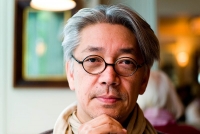
Ryuichi Sakamoto (坂本 龍一 Sakamoto Ryūichi?, born January 17, 1952) is an Academy Award-, Grammy-, and Golden Globe-winning Japanese musician, composer, record producer and actor, based in New York and Tokyo. He played keyboards in the influential Japanese electropop band Yellow Magic Orchestra. His 1999 musical composition "Energy Flow" is the first number-one instrumental single in the Japan's Oricon charts history. He was ranked at number 59 in a list of the top 100 most influential musicians compiled by HMV Japan.
Galaxy Angel

Galaxy Angel is a bishōjo sci-fi metaseries composed of anime, manga and dating sim video games. It was created by Broccoli in July 2000, when it launched a multi-platformed project called Project G.A.
Luigi Cherubini
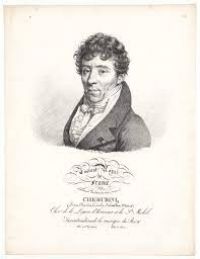
Luigi Cherubini (b. 8 or 14 September, 1760 Florence – died 15 March 1842 Paris) is an Italian origin who worked in the classical opera music period and prepared operas and other musical genres in accordance with the principles of this period, but spent most of his working life in France. also a composer. His most important compositions are operas and religious music genres. He was named by Beethoven as the best composer of his time.
Jan Akkerman
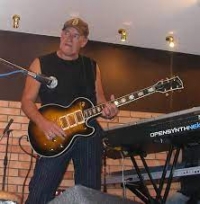
Jan Akkerman is a Dutch guitarist. He first found international commercial success with the band Focus, which he co-founded with Thijs van Leer. After leaving Focus, he continued as a solo musician, adding jazz fusion influences.
Melcior Junca
Melcior Juncà i Farré (Sant Joan de les Abadesses, Ripollès, 1757 - Tarragona, 1824) was a Catalan maestro de capilla, composer and music theorist. He was son of a musician, Jacinto Juncà. From 1798 to 1806 he was chapel master at the Cathedral of Tarragona.
Dave Matthews Band

Dave Matthews Band, sometimes abbreviated as DMB, is an American music group founded in 1991 in Charlottesville, Virginia. It was founded by singer-songwriter and guitarist Dave Matthews, bassist Stefan Lessard, violin Boyd Tinsley, drummer Carter Beauford and saxophonist LeRoi Moore.
Camille Saint-Saëns
Charles-Camille Saint-Saëns (French pronunciation: ; 9 October 1835 – 16 December 1921) was a French composer, organist, conductor, and pianist of the Romantic era. He is known especially for The Carnival of the Animals, Danse macabre, Samson and Delilah (Opera) , Piano Concerto No. 2, Cello Concerto No. 1, Havanaise, Introduction and Rondo Capriccioso, and his Symphony No. 3 (Organ Symphony).
Anita Baker

Anita Denise Baker (born January 26, 1958) is an American singer-songwriter. Starting her career in the late 1970s with the funk band Chapter 8, Baker released her first solo album, The Songstress, in 1983. In 1986, she rose to stardom following the release of her platinum-selling second album, Rapture, which included the Grammy-winning single "Sweet Love". She is regarded as one of the most popular singers of soulful romantic ballads during the height of the quiet storm period of contemporary R&B in the 1980s. As of 2017, Baker has won eight Grammy Awards and has five platinum albums and one gold album. Her vocal range is contralto.
School Days

School Days (スクールデイズ Sukūru Deizu?) is a Japanese adult visual novel developed by 0verflow and published by Stack, and was originally released for the PC on April 28, 2005. It was subsequently released as a DVD TV game by Stack, followed by an all-ages port titled School Days L×H published by Interchannel for the PlayStation 2, in both limited and regular editions, on January 17, 2008. It was later re-released as School Days HQ on October 8, 2010, with improved graphics, additional story and new endings. JAST USA announced that, in co-operation with 0verflow and localization group Sekai Project, School Days HQ will be translated and released for English-language distribution before the end of 2011. School Days has received two spin-off titles, Summer Days and Cross Days, and has made several transitions to other media, including a 12-episode television and two OVA anime by TNK, a two-volume manga by Homare Sakazuki, six novels and a radio drama series.
Tomohito Nishiura

Tomohito Nishiura (西浦 智仁, Nishiura Tomohito) is a Japanese video game music composer. He works primarily on games developed by Level-5.
Jehan Alain
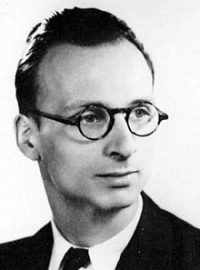
Jehan Ariste Alain (3 February 1911 – 20 June 1940) was a French organist, composer, and soldier. Born into a family of musicians, he learned the organ from his father and a host of other teachers, becoming a composer at 18, and composing until the outbreak of the Second World War 10 years later. His compositional style was influenced by the musical language of the earlier Claude Debussy, and his contemporary Olivier Messiaen, as well as his interest in music, dance and philosophy of the far east. At the outbreak of WWII Alain became a dispatch rider in the Eighth Motorised Armour Division of the French Army; he took part in the Battle of Saumur, in which he was killed.
Lipa Schmeltzer

Lipa Schmeltzer is an American singer, entertainer, and composer. He is a headliner in Hasidic as well as modern Jewish communities worldwide and "the Lady Gaga of Hasidic music". As of 2020, Schmeltzer has released 17 solo albums.
Arno Babajanian

Arno Babajanian (Armenian: Առնո Բաբաջանյան) (January 22, 1921 – November 11, 1983) was a Soviet and Armenian composer and pianist. He was made a People's Artist of the USSR in 1971.Babajanian was born in Yerevan, Armenia. By age 5, his musical talent was apparent, and the composer Aram Khachaturian suggested that the boy be given proper music training. Two years later, in 1928, Babajanian entered the Komitas State Conservatory of Yerevan. In 1938, he continued his studies in Moscow with Vissarion Shebalin.He later returned to Yerevan, where from 1950 to 1956 he taught at the conservatory. In 1952, he wrote the Piano Trio in F-sharp minor. It received immediate acclaim and was regarded as a masterpiece from the time of its premiere. Subsequently, he undertook concert tours throughout the Soviet Union and Europe. In 1971, he was named a People's Artist of the USSR.
Émile Pessard
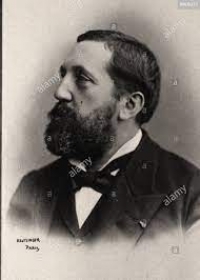
Émile Louis Fortuné Pessard was a French composer. Pessard was born and died in Paris. He studied at the Conservatoire de Paris, where he won 1st prize in Harmony. In 1866 he won the Grand Prix de Rome with his cantata Dalila which was performed at the Paris Opera on February 21, 1867.
Georges Bizet

Georges Bizet (25 October 1838 – 3 June 1875) was a French composer and pianist of the Romantic era. He is best known for the opera Carmen.
Bizet was born at 26 rue de la Tour d'Auvergne in the 9th arrondissement of Paris in 1838. He was registered with the legal name Alexandre César Léopold Bizet, but he was baptised on 16 March 1840 with the first name Georges, and he was always known thereafter as Georges Bizet. His father Adolphe Armand Bizet (1810-86) was an amateur singer and composer, and his mother, Aimée Léopoldine Joséphine née Delsarte (1814-61), was the sister of the famous singing teacher François Delsarte.
He entered the Paris Conservatory of Music on 9 October 1848, a fortnight before his tenth birthday. His teachers there were Pierre Zimmermann (fugue and counterpoint; often assisted by his son-in-law Charles Gounod), Antoine François Marmontel (piano), François Benoist (organ) and, on Zimmermann's death, Fromental Halévy, whose daughter he himself later married. He won first prizes for organ and fugue in 1855 and completed his earliest compositions.
His first symphony, the Symphony in C, was written in November 1855, when he was seventeen, evidently as a student assignment. It was unknown to the world until 1933, when it was discovered in the archives of the Paris Conservatory library. Upon its first performance in 1935, it was immediately hailed as a junior masterwork and a welcome addition to the early Romantic period repertoire. The symphony bears a stylistic resemblance to the first symphony of Gounod, first played earlier in the same year, and which Bizet had arranged for two pianos although present-day listeners may discern a similarity to music of Franz Schubert, whose work was little known in France at the time the symphony was written.
In 1857, a setting of the one-act operetta Le docteur Miracle won him a share in a prize offered by Jacques Offenbach. He also won the music composition scholarship of the Prix de Rome, the conditions of which required him to study in Rome for three years. There, his talent developed as he wrote such works as the opera buffa Don Procopio (1858-59). There he also composed his only major sacred work, Te Deum (1858), which he submitted to the Prix Rodrigues competition, a contest for Prix de Rome winners only. Bizet failed to win the Prix Rodrigues, and the Te Deum score remained unpublished until 1971. He made two attempts to write another symphony in 1859, but destroyed the manuscripts in December of that year. Apart from this period in Rome, Bizet lived in the Paris area all his life.
Shortly after leaving Rome in July 1860, but while still touring in Italy, he had the idea of writing a symphony in which each of the four movements would be a musical evocation of a different Italian city – Rome, Venice, Florence and Naples. On hearing of his mother's serious illness he cut short his Italian travels and returned to Paris in September 1860; she died a year later. The Scherzo of the symphony was completed by November 1861, but it was not until 1866 that the first version of the whole symphony was written. He subjected it to a number of revisions through to 1871, but died before ever producing what he considered the definitive version. For this reason, the work is sometimes described as "unfinished", but this is an inaccurate description as it was fully scored. It was published in 1880 as the Roma Symphony.
Bizet was born at 26 rue de la Tour d'Auvergne in the 9th arrondissement of Paris in 1838. He was registered with the legal name Alexandre César Léopold Bizet, but he was baptised on 16 March 1840 with the first name Georges, and he was always known thereafter as Georges Bizet. His father Adolphe Armand Bizet (1810-86) was an amateur singer and composer, and his mother, Aimée Léopoldine Joséphine née Delsarte (1814-61), was the sister of the famous singing teacher François Delsarte.
He entered the Paris Conservatory of Music on 9 October 1848, a fortnight before his tenth birthday. His teachers there were Pierre Zimmermann (fugue and counterpoint; often assisted by his son-in-law Charles Gounod), Antoine François Marmontel (piano), François Benoist (organ) and, on Zimmermann's death, Fromental Halévy, whose daughter he himself later married. He won first prizes for organ and fugue in 1855 and completed his earliest compositions.
His first symphony, the Symphony in C, was written in November 1855, when he was seventeen, evidently as a student assignment. It was unknown to the world until 1933, when it was discovered in the archives of the Paris Conservatory library. Upon its first performance in 1935, it was immediately hailed as a junior masterwork and a welcome addition to the early Romantic period repertoire. The symphony bears a stylistic resemblance to the first symphony of Gounod, first played earlier in the same year, and which Bizet had arranged for two pianos although present-day listeners may discern a similarity to music of Franz Schubert, whose work was little known in France at the time the symphony was written.
In 1857, a setting of the one-act operetta Le docteur Miracle won him a share in a prize offered by Jacques Offenbach. He also won the music composition scholarship of the Prix de Rome, the conditions of which required him to study in Rome for three years. There, his talent developed as he wrote such works as the opera buffa Don Procopio (1858-59). There he also composed his only major sacred work, Te Deum (1858), which he submitted to the Prix Rodrigues competition, a contest for Prix de Rome winners only. Bizet failed to win the Prix Rodrigues, and the Te Deum score remained unpublished until 1971. He made two attempts to write another symphony in 1859, but destroyed the manuscripts in December of that year. Apart from this period in Rome, Bizet lived in the Paris area all his life.
Shortly after leaving Rome in July 1860, but while still touring in Italy, he had the idea of writing a symphony in which each of the four movements would be a musical evocation of a different Italian city – Rome, Venice, Florence and Naples. On hearing of his mother's serious illness he cut short his Italian travels and returned to Paris in September 1860; she died a year later. The Scherzo of the symphony was completed by November 1861, but it was not until 1866 that the first version of the whole symphony was written. He subjected it to a number of revisions through to 1871, but died before ever producing what he considered the definitive version. For this reason, the work is sometimes described as "unfinished", but this is an inaccurate description as it was fully scored. It was published in 1880 as the Roma Symphony.
Bryan Adams

Bryan Adams (born Bryan Guy Adams on November 5, 1959) is Grammy Award-winning Canadian singer-songwriter. As of 2008, Adams has released eleven studio albums and 16 albums overall. He has been nominated for 3 Academy Awards and 5 Golden Globes for song writing in motion pictures.
Adams is a Grammy Award-winning Canadian singer-songwriter. Adams' career was launched with his 1980 debut album Bryan Adams, a rock album that garned limited success. His fourth album Reckless was released in 1984 with sales more then five million copies sold in the United States. In 1991, he released Waking Up the Neighbours which debuted at number one on several national music charts. The album reached sales of more than 10 million units worldwide, which 3 million copies was sold in the United States.
Adams is a Grammy Award-winning Canadian singer-songwriter. Adams' career was launched with his 1980 debut album Bryan Adams, a rock album that garned limited success. His fourth album Reckless was released in 1984 with sales more then five million copies sold in the United States. In 1991, he released Waking Up the Neighbours which debuted at number one on several national music charts. The album reached sales of more than 10 million units worldwide, which 3 million copies was sold in the United States.
The Verve
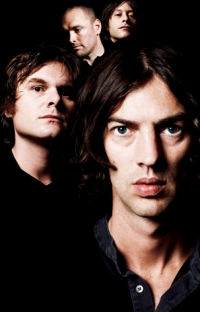
The Verve (originally Verve) are an English rock band formed in Wigan, Greater Manchester in 1989 at Winstanley Sixth Form College, by vocalist Richard Ashcroft, guitarist Nick McCabe, bassist Simon Jones, and drummer Peter Salisbury. Simon Tong later became a member. The band split in April 1999 due to inner conflicts which led to McCabe's departure. The band's original line-up reunited in June 2007. The band embarked on a tour in late 2007 and released Forth in August 2008.
Beginning with a psychedelic sound indebted to space rock and shoegazing, by the mid-1990s the band had released several EPs and two acclaimed records. They also endured name and lineup changes, breakups, health problems, drug abuse and various lawsuits. The band's commercial breakthrough was the album Urban Hymns and its single "Bitter Sweet Symphony", which became a massive worldwide hit. Soon after this commercial peak, the band broke up, citing creative struggles between band members. By then, The Verve had become one of the most influential British alternative rock acts of the decade.
Mike Gee of iZINE said, "...The Verve, as he (Richard Ashcroft) promised, had become the greatest band in the world. Most of the critics agreed with him. Most paid due homage. The Verve were no longer the question mark or the cliché. They were the statement and the definition."
Beginning with a psychedelic sound indebted to space rock and shoegazing, by the mid-1990s the band had released several EPs and two acclaimed records. They also endured name and lineup changes, breakups, health problems, drug abuse and various lawsuits. The band's commercial breakthrough was the album Urban Hymns and its single "Bitter Sweet Symphony", which became a massive worldwide hit. Soon after this commercial peak, the band broke up, citing creative struggles between band members. By then, The Verve had become one of the most influential British alternative rock acts of the decade.
Mike Gee of iZINE said, "...The Verve, as he (Richard Ashcroft) promised, had become the greatest band in the world. Most of the critics agreed with him. Most paid due homage. The Verve were no longer the question mark or the cliché. They were the statement and the definition."
Richard Strauss

Richard Georg Strauss (German pronunciation: ; 11 June 1864 – 8 September 1949) was a German composer, conductor, pianist, and violinist. Considered a leading composer of the late Romantic and early modern eras, he has been described as a successor of Richard Wagner and Franz Liszt. Along with Gustav Mahler, he represents the late flowering of German Romanticism after Wagner, in which pioneering subtleties of orchestration are combined with an advanced harmonic style.
Melody Gardot

Melody Gardot (/ɡɑːrˈdoʊ/; born February 2, 1985) is an American jazz singer.At the age of 19, Gardot was involved in a bicycle accident and sustained a head injury. Music played a critical role in her recovery. She became an advocate of music therapy, visiting hospitals and universities to discuss its benefits. In 2012, she gave her name to a music therapy program in New Jersey.
Joe Hisaishi

Mamoru Fujisawa (藤澤 守 Fujisawa Mamoru?), known professionally as Joe Hisaishi (久石 譲 Hisaishi Jō?, born December 6, 1950), is a composer and director known for over 100 film scores and solo albums dating back to 1981.
While possessing a stylistically distinct sound, Hisaishi's music has been known to explore and incorporate different genres, including minimalist, experimental electronic, European classical, and Japanese classical. Lesser known are the other musical roles he plays; he is also a typesetter, author, arranger, and head of an orchestra.
He is best known for his work with animator Hayao Miyazaki, having composed scores for many of his films including Nausicaä of the Valley of the Wind (1984), My Neighbor Totoro (1988), Princess Mononoke (1997), Spirited Away (2001), Howl's Moving Castle (2004) and Ponyo (2008). He is also recognized for the soundtracks he has provided for filmmaker 'Beat' Takeshi Kitano, including Dolls (2002), Kikujiro (1999), Hana-bi (1997), Kids Return (1996), Sonatine (1993).
While possessing a stylistically distinct sound, Hisaishi's music has been known to explore and incorporate different genres, including minimalist, experimental electronic, European classical, and Japanese classical. Lesser known are the other musical roles he plays; he is also a typesetter, author, arranger, and head of an orchestra.
He is best known for his work with animator Hayao Miyazaki, having composed scores for many of his films including Nausicaä of the Valley of the Wind (1984), My Neighbor Totoro (1988), Princess Mononoke (1997), Spirited Away (2001), Howl's Moving Castle (2004) and Ponyo (2008). He is also recognized for the soundtracks he has provided for filmmaker 'Beat' Takeshi Kitano, including Dolls (2002), Kikujiro (1999), Hana-bi (1997), Kids Return (1996), Sonatine (1993).
Peter Heidrich

erman classical violinist and composer. Best known for his Variations On Happy Birthday. He also contributed soundtrack music for Europa radioplays in ...
Johann Baptist Cramer
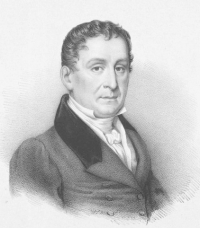
Johann (sometimes John) Baptist Cramer (24 February 1771 – 16 April 1858) was an English pianist, composer and music publisher of German origin. He was the son of Wilhelm Cramer, a famous London violinist and conductor, one of a numerous family who were identified with the progress of music during the 18th and 19th centuries.
Bach

Johann Sebastian Bach (31 March 1685 – 28 July 1750) was a German composer and organist whose sacred and secular works for choir, orchestra, and solo instruments drew together the strands of the Baroque period and brought it to its ultimate maturity. Although he introduced no new forms, he enriched the prevailing German style with a robust contrapuntal technique, an unrivalled control of harmonic and motivic organisation in composition for diverse musical forces, and the adaptation of rhythms and textures from abroad, particularly Italy and France.
Revered for their intellectual depth and technical and artistic beauty, Bach's works include the Brandenburg concertos; the Goldberg Variations; the English Suites, French Suites, Partitas, and Well-Tempered Clavier; the Mass in B Minor; the St. Matthew Passion; the St. John Passion; The Musical Offering; The Art of Fugue; the Sonatas and Partitas for violin solo; the Cello Suites; more than 200 surviving cantatas; and a similar number of organ works, including the celebrated Toccata and Fugue in D Minor.
While Bach's fame as an organist was great during his lifetime, he was not particularly well-known as a composer. His adherence to Baroque forms and contrapuntal style was considered "old-fashioned" by his contemporaries, especially late in his career when the musical fashion tended towards Rococo and later Classical styles. A revival of interest and performances of his music began early in the 19th century, and he is now widely considered to be one of the greatest composers in the Western tradition.
Revered for their intellectual depth and technical and artistic beauty, Bach's works include the Brandenburg concertos; the Goldberg Variations; the English Suites, French Suites, Partitas, and Well-Tempered Clavier; the Mass in B Minor; the St. Matthew Passion; the St. John Passion; The Musical Offering; The Art of Fugue; the Sonatas and Partitas for violin solo; the Cello Suites; more than 200 surviving cantatas; and a similar number of organ works, including the celebrated Toccata and Fugue in D Minor.
While Bach's fame as an organist was great during his lifetime, he was not particularly well-known as a composer. His adherence to Baroque forms and contrapuntal style was considered "old-fashioned" by his contemporaries, especially late in his career when the musical fashion tended towards Rococo and later Classical styles. A revival of interest and performances of his music began early in the 19th century, and he is now widely considered to be one of the greatest composers in the Western tradition.
Final Fantasy

Final Fantasy (ファイナルファンタジー?) is a media franchise created by Hironobu Sakaguchi, and is developed and owned by Square Enix (formerly Squaresoft). The franchise centers on a series of fantasy and science-fantasy console role-playing games (RPGs), but includes motion pictures, anime, printed media, and other merchandise. The series began in 1987 as an eponymous video game developed to save Square from bankruptcy; the game was a success and spawned sequels. The video game series has since branched into other genres such as tactical role-playing, action role-playing, massively multiplayer online role-playing, and racing.
Although most Final Fantasy installments are independent stories with various different settings and main characters, they feature common elements that define the franchise. Such recurring elements include plot themes, character names, and game mechanics. Plots center on a group of heroes battling a great evil while exploring the characters' internal struggles and relationships. Character names are often derived from the history, languages, and mythologies of cultures worldwide.
The series has been commercially and critically successful; it is Square Enix's best selling video game franchise, with more than 85 million units sold, and one of the best-selling video game franchises. It was awarded a star on the Walk of Game in 2006, and holds seven Guinness World Records in the Guinness World Records Gamer's Edition 2008. The series is well known for its innovation, visuals, and music, such as the inclusion of full motion videos, photo-realistic character models, and orchestrated music by Nobuo Uematsu. Final Fantasy has been a driving force in the video game industry. The video game series has affected Square's business practices and its relationships with other video game developers. It has also introduced many features now common in console RPGs and has been credited with helping to popularize RPGs in markets outside Japan.
Although most Final Fantasy installments are independent stories with various different settings and main characters, they feature common elements that define the franchise. Such recurring elements include plot themes, character names, and game mechanics. Plots center on a group of heroes battling a great evil while exploring the characters' internal struggles and relationships. Character names are often derived from the history, languages, and mythologies of cultures worldwide.
The series has been commercially and critically successful; it is Square Enix's best selling video game franchise, with more than 85 million units sold, and one of the best-selling video game franchises. It was awarded a star on the Walk of Game in 2006, and holds seven Guinness World Records in the Guinness World Records Gamer's Edition 2008. The series is well known for its innovation, visuals, and music, such as the inclusion of full motion videos, photo-realistic character models, and orchestrated music by Nobuo Uematsu. Final Fantasy has been a driving force in the video game industry. The video game series has affected Square's business practices and its relationships with other video game developers. It has also introduced many features now common in console RPGs and has been credited with helping to popularize RPGs in markets outside Japan.
Wayne shorter

Wayne Shorter is an American jazz saxophonist and composer. More recently, in the late 1950s, he emerged as the primary composer and member of Art Blakey's Jazz Reporters. He joined Miles Davis' Second Big Five in the 1960s, where he founded the jazz fusion group Weather Report. More than 20 albums
Isaac Albeniz

Isaac Albéniz i Pascual (Spanish pronunciation: ) (May 29, 1860 – May 18, 1909) was a Spanish pianist and composer best known for his piano works based on folk music.
Albéniz’ Suite Española Op.47 is comprised mainly of pieces written in 1886, and grouped together in 1887 in honor of the Queen of Spain. Like many of Albéniz' piano pieces, these works are miniature tone pictures of different geographical regions and musical idioms of Spain. The eight original titles are Granada, Cataluna, Sevilla, Cadiz, Asturias, Aragon, Castilla and Cuba but only the first three titles and Cuba appeared in the original collection. The other pieces were published in later collections, often with different titles. The publisher Hofmeister published all eight titles of Suite Espanola in 1911 after Albéniz’ death, appropriating other pieces for the other four titles so those pieces do not always accurately reflect the geographic designation of the titles, most obviously in the case of Asturias (Leyenda) whose Andalusian flamenco rhythms bear little resemblance to the music of the northern province Asturias. The opus number 47 assigned by Hofmeister has no relation to any chronological order in Albéniz’ oeuvre, in which opus numbers were randomly given by publishers or by Albéniz himself, with some pieces appearing in more than one collection.
Albéniz’ Suite Española Op.47 is comprised mainly of pieces written in 1886, and grouped together in 1887 in honor of the Queen of Spain. Like many of Albéniz' piano pieces, these works are miniature tone pictures of different geographical regions and musical idioms of Spain. The eight original titles are Granada, Cataluna, Sevilla, Cadiz, Asturias, Aragon, Castilla and Cuba but only the first three titles and Cuba appeared in the original collection. The other pieces were published in later collections, often with different titles. The publisher Hofmeister published all eight titles of Suite Espanola in 1911 after Albéniz’ death, appropriating other pieces for the other four titles so those pieces do not always accurately reflect the geographic designation of the titles, most obviously in the case of Asturias (Leyenda) whose Andalusian flamenco rhythms bear little resemblance to the music of the northern province Asturias. The opus number 47 assigned by Hofmeister has no relation to any chronological order in Albéniz’ oeuvre, in which opus numbers were randomly given by publishers or by Albéniz himself, with some pieces appearing in more than one collection.
Djavan

Djavan (full name Djavan Caetano Viana) is a Brazilian singer/songwriter, (born 27 January 1949, in Alagoas, Brazil) Djavan combines traditional Brazilian rhythms with popular music drawn from the Americas, Europe and Africa. He can arguably be categorized in any of the following musical genres: Música Popular Brasileira (Brazilian pop), samba, or Latin dance.
Cole Porter

Cole Albert Porter (June 9, 1891 – October 15, 1964) was an American composer and songwriter. His works include the musical comedies Kiss Me, Kate, Fifty Million Frenchmen, DuBarry Was a Lady and Anything Goes, as well as songs like "Night and Day", "I Get a Kick out of You", "Well, Did You Evah!" and "I've Got You Under My Skin". He was noted for his sophisticated, bawdy lyrics, clever rhymes and complex forms. Porter was one of the greatest contributors to the Great American Songbook. Cole Porter is one of the few Tin Pan Alley composers to have written both the lyrics and the music for his songs.
Celine Dion

Céline Marie Claudette Dion (born March 30, 1968 in Charlemagne, Quebec) is a Canadian singer, and occasional songwriter and actress.
Dion had first gained international recognition in the 1980s by winning both the 1982 Yamaha World Popular Song Festival and the 1988 Eurovision Song Contest.
Dion's music has been influenced by genres ranging from rock and R&B to gospel and classical, and while her releases have often received mixed critical reception, she is renowned for her technically skilled and powerful vocals.
Dion had first gained international recognition in the 1980s by winning both the 1982 Yamaha World Popular Song Festival and the 1988 Eurovision Song Contest.
Dion's music has been influenced by genres ranging from rock and R&B to gospel and classical, and while her releases have often received mixed critical reception, she is renowned for her technically skilled and powerful vocals.
Domenico Modugno

Domenico Modugno (Italian pronunciation: ; 9 January 1928 – 6 August 1994) was an Italian singer, songwriter, actor, guitarist, and later in life, a member of the Italian Parliament. He is known for his 1958 international hit song "Nel blu dipinto di blu", for which he received Grammy Awards for Record of the Year and Song of the Year. He is considered the first Italian cantautore.
Nami Tamaki

Nami Tamaki (玉置成実 Tamaki Nami) (born June 1, 1988) is a Japanese pop singer known for her youthful age and strong dancing.His career started when he was selected among 5,000 people in the Sony Music Japan Contest in 2003 with the song "Survivor" by Destiny's Child, which he danced to. It has various commercial links with the Japanese anime and game industry; He has also acted in a stage musical and a movie.
Danny Isidro
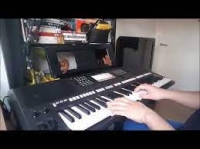
Danny Isidro, SJ joined the Jesuits in May 1973 and ordained in March 1982. He is the Department Chair of the Digital Arts and Computer Animation in the ...
Headley
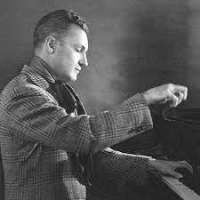
Hubert Klyne Headley (1906–1996) was an American composer, pianist and organist.Headley was born in West Virginia in 1906. When he was six his mother, an organist, moved the family to California. At ten years old he was introduced to Maurice Ravel, whose music had a strong effect on him. He studied music at the University of the Pacific, graduating in 1928, and then at the Eastman School of Music until 1937.From 1939 to 1954 Headley taught at the University of Santa Barbara. During that time he succeeded Maurice Faulkner as conductor of the University of California Symphony Orchestra in Santa Barbara, becoming known both as a composer and as a pianist and giving concerts in which he conducted his own works, for example in Paris, London, Budapest and Prague. After 1954 he moved to Seattle to teach at the Cornish School of Applied Arts.
Ernesto Nazareth

Ernesto Júlio de Nazareth (March 20, 1863 – February 1, 1934) was a Brazilian composer and pianist, especially noted for his creative Maxixe and Choro compositions. Influenced by African rhythms and many musical styles like the Lundu and the Choro, he never fully accepted this influence, refusing to give popular names to his compositions. A musician of classical training, he classified his music as "Brazilian tangos", since the Argentine tango and dances were considered fashionable at the time. His piano repertoire is now part of the teaching programs of both classical and popular styles, as Nazareth once served at the boundary between these two worlds.
Carlos Gardel

Carlos Gardel (11 December 1890 – 24 June 1935) was a singer, songwriter and actor, and is perhaps the most prominent figure in the history of tango. The unerring musicality of Gardel's baritone voice and the dramatic phrasing of his lyrics made miniature masterpieces of his hundreds of three-minute tango recordings. Together with lyricist and long-time collaborator Alfredo Le Pera, Gardel wrote several classic tangos, most notably "Mi Buenos Aires querido", "Por una cabeza" and "El día que me quieras".
Gardel died in an airplane crash at the height of his career, becoming an archetypal tragic hero mourned throughout Latin America. For many, Gardel embodies the soul of the tango style. He is commonly referred to as "Carlitos", "El Zorzal" (The Song Thrush), "The King of Tango", "El Mago" (The Magician) and "El Mudo" (The Mute).
Gardel died in an airplane crash at the height of his career, becoming an archetypal tragic hero mourned throughout Latin America. For many, Gardel embodies the soul of the tango style. He is commonly referred to as "Carlitos", "El Zorzal" (The Song Thrush), "The King of Tango", "El Mago" (The Magician) and "El Mudo" (The Mute).
Leon Willett
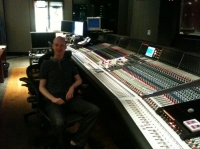
Leon Willett is an award-winning film, game and concert hall composer.Born in Edinburgh, UK, but raised in Barcelona, Spain his interest in music began at an early age. Spanish guitar lessons soon piqued his interest in all styles of music and by age 14 he was producing electronic music and studying jazz performance.
Guilherme Schroeter
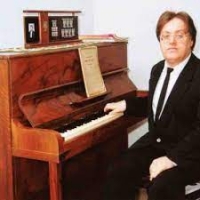
Guilherme Schroeter was born May 16, 1960 in Rio de Janeiro, Brazil, from a traditional family of Musicians: his mother, a pianist; his father, a violinist; his brother, a violinist; and his aunt, Olga Maria Schroeter, a famous opera singer.Guilherme began his studies at seven years of age with his mother in 1967. Guilherme's mother, by her devotion to music and the piano, inspired Guilherme to begin practicing the piano and also to create his first compositions. At 7, Guilherme was able to give brief performances, and four years later in 1971, at the age of 11, his first composition was performed. The composition is A Celebration for Christmas, composed for a trio of musicians.
Mike Batt

Michael Philip Batt, LVO (born 6 February 1949) is an English singer-songwriter, musician, arranger, record producer, director, conductor and former Deputy Chairman of the British Phonographic Industry. Having achieved substantial international success as a solo artist he is particularly known in the UK for creating The Wombles pop act, writing many hits including the chart-topping "Bright Eyes", and discovering Katie Melua. He has also conducted many of the world's great orchestras, including the London Symphony, Royal Philharmonic, London Philharmonic, Sydney Symphony and Stuttgart Philharmonic in both classical and pop recordings and performances.
Zina Goldrich
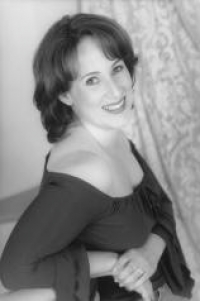
Zina Goldrich (born 1964) is a musical theater composer. She is most known for her work with lyricist Marcy Heisler.
Goldrich and Heisler are currently working on the musical adaptation of Ever After, (the Drew Barrymore Cinderella movie produced by 20th Century Fox) which was scheduled to have its world premiere at the Curran Theatre in San Francisco in November 2009, but has been indefinitely postponed.
The duo has performed at Carnegie Hall, Birdland, and other venues including the Kennedy Center in Washington D.C. Goldrich and Heisler wrote the Off-Broadway show, Junie B. Jones, a musical version of the popular character created by author Barbara Park, produced by Theatreworks USA, which received a 2005 Lucille Lortel Award nomination for Outstanding Musical. An expanded version of the musical was staged in late 2005 at the Lucille Lortel theater; both the original and expanded productions received reviews in The New York Times.
"Taylor the Latte Boy", the Goldrich & Heisler song associated with Kristin Chenoweth—who sang "Taylor" on The Rosie O'Donnell Show and The Late Late Show as well as at the Metropolitan Opera House—has also been performed by other singers including Susan Egan and John Tartaglia. They also wrote the cult-hit "Alto's Lament" which is a song about a soprano who always gets stuck singing the alto parts.
Zina has played the keyboards in Broadway orchestra pits, including Avenue Q, Oklahoma!, Bombay Dreams, Grand Hotel and conducted at Titanic. With Marcy Heisler, she has written songs for the Disney characters, Winnie the Pooh, Timon and Poomba; they are also contributors to the Disney Channel's Johnny and the Sprites. She currently composes for Wonderpets on Nickelodeon.
Goldrich and Heisler are currently working on the musical adaptation of Ever After, (the Drew Barrymore Cinderella movie produced by 20th Century Fox) which was scheduled to have its world premiere at the Curran Theatre in San Francisco in November 2009, but has been indefinitely postponed.
The duo has performed at Carnegie Hall, Birdland, and other venues including the Kennedy Center in Washington D.C. Goldrich and Heisler wrote the Off-Broadway show, Junie B. Jones, a musical version of the popular character created by author Barbara Park, produced by Theatreworks USA, which received a 2005 Lucille Lortel Award nomination for Outstanding Musical. An expanded version of the musical was staged in late 2005 at the Lucille Lortel theater; both the original and expanded productions received reviews in The New York Times.
"Taylor the Latte Boy", the Goldrich & Heisler song associated with Kristin Chenoweth—who sang "Taylor" on The Rosie O'Donnell Show and The Late Late Show as well as at the Metropolitan Opera House—has also been performed by other singers including Susan Egan and John Tartaglia. They also wrote the cult-hit "Alto's Lament" which is a song about a soprano who always gets stuck singing the alto parts.
Zina has played the keyboards in Broadway orchestra pits, including Avenue Q, Oklahoma!, Bombay Dreams, Grand Hotel and conducted at Titanic. With Marcy Heisler, she has written songs for the Disney characters, Winnie the Pooh, Timon and Poomba; they are also contributors to the Disney Channel's Johnny and the Sprites. She currently composes for Wonderpets on Nickelodeon.
Vinicius de Moraes

Marcus Vinicius da Cruz e Mello Moraes, also known as Vinicius de Moraes and nicknamed O Poetinha, was a Brazilian poet, lyricist, essayist, and playwright. He served as a diplomat, composed bossa nova music, and recorded several albums.
Leon Firket
Leon Firket musician, composer, viola and piano player.
 Sheet Music Drive is a web site for those who wants to access popular sheet music easily,
letting them download the sheet music for free for trial purposes.
It's completely free to download and try the listed sheet music, but you have to delete the files after 24 hours of trial period.
Don't forget, if you like the piece of music you have just learned playing,
treat the artist with respect, and go buy the original sheet music.
Sheet Music Drive is a web site for those who wants to access popular sheet music easily,
letting them download the sheet music for free for trial purposes.
It's completely free to download and try the listed sheet music, but you have to delete the files after 24 hours of trial period.
Don't forget, if you like the piece of music you have just learned playing,
treat the artist with respect, and go buy the original sheet music.
